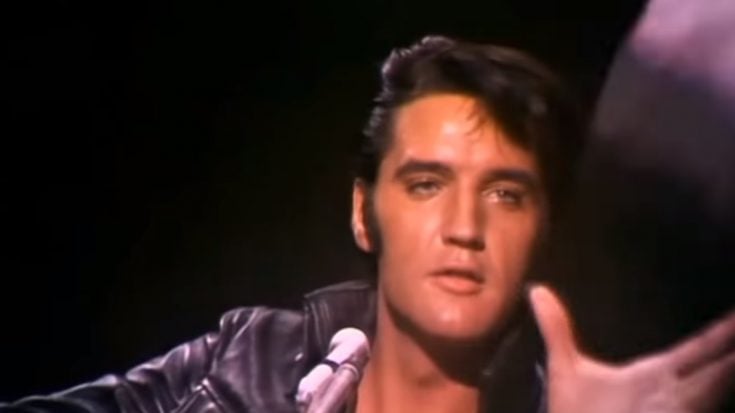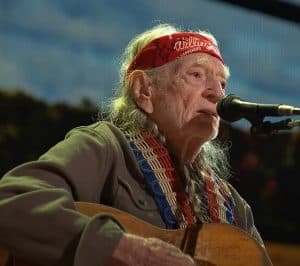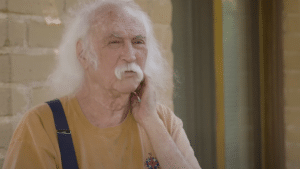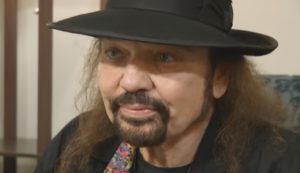Elvis Presley Buys Out His Audience If They Are Not Hyped Up

Elvis Presley - maria mountain824 / Youtube
Imagine the electrifying roar of a stadium packed to the brim. Faces contorted in ecstatic screams, a wave of adoration threatening to crash onto the stage. This wasn’t just a concert, it was a full-blown sensory overload, a scene straight out of a rock and roll dream.
For Elvis Presley, these were the lifeblood of his performances. His electrifying stage presence, the suggestive hip gyrations, the sheer power of his voice – all of it ignited a frenzy in his audience, a level of excitement that often sent security scrambling to contain the overflowing love. But Elvis thrived on it.
However, a curious incident shattered this well-oiled machine. Faced with a surprisingly polite and subdued audience, a stark contrast to the usual pandemonium, The King, ever the showman, decided to take matters into his own hands.
His solution was as audacious as it was expensive, a story that would forever be etched in the annals of rock and roll legend.
The King Needs His Roar
Elvis thrived on chaos. When his bodyguards expressed concern about overzealous fans, his response was chillingly clear: “When they stop attacking me, I’m dead,” according to Steve Dunleavy’s Elvis: What Happened? This electrifying energy was his fuel.
So, imagine his disappointment when a 1973 audience fell flat. Bodyguard Red West recalled Elvis’ frustration in the dressing room. “He told me that the audience wasn’t worth a damn,” West said. The problem wasn’t a lack of enthusiasm, but a lack of the usual rowdiness. This rural crowd was polite, a stark contrast to the riots Elvis had become accustomed to.
For Elvis, polite was a four-letter word. He wasn’t used to a subdued response. Often, he’d resort to playful jabs, reminding the audience they were allowed to clap or point out the “usual” applause spots. But this time, even those tactics failed to ignite the spark he craved.
The King Buys His Buzz
Elvis wasn’t about to accept a subdued performance. Determined to reignite the energy, he took a shocking step. According to bodyguard West, Elvis instructed his jeweler, Lowell Hays, to bring his entire jewelry case right onto the stage. Then, in a move that left the audience speechless, Elvis started handing out expensive rings.
West described the scene: “The audience just went crazy. These weren’t dress rings, these were real diamonds and sapphires and stuff like that.” On that single night, Elvis lavished the crowd with an estimated thirty-five thousand dollars’ worth of gems.
It was an act of outrageous generosity, bordering on madness, but it achieved its goal. The crowd roared with excitement, giving Elvis the waves of adoration he craved, no matter the cost.
The Jeweler’s Lament
While the audience basked in the afterglow of Elvis’s outrageous generosity, a different story unfolded backstage. Hays couldn’t shake the feeling of mortification. Recalling the incident for Page Six, Hays described the night as a personal nightmare. “He started taking pieces of jewelry out of the case and going over and was giving them to these girls on the front row,” Hays recounted.
Hays elaborated, “He gave away a lot of jewelry that night. He was in one of those moods,” referring to Elvis’s well-known bouts of impulsiveness. Caught off guard, Hays felt powerless to intervene. “Frankly, I was embarrassed and wished it hadn’t been there,” he confessed.
The cost of Elvis’s impromptu audience revival weighed heavily on Hays. To him, it wasn’t just expensive jewelry; it represented a “huge amount of money” lost in a matter of minutes. The King’s desire for a roaring crowd came at a steep price for his jeweler, leaving Hays with a bitter taste in his mouth and a lighter wallet.
The King’s Priorities
Despite Hays’s distress, Elvis remained unfazed. After the show, Hays confronted the King, voicing his concern about the extravagant giveaway. “So when the show ended, I ran out the back door and jumped in Elvis’ car,” Hays recounted.
His frustration was evident, telling the King, “Elvis, I’m embarrassed. I just wish I hadn’t been here and then you wouldn’t have lost all that money, you just gave away all that money out there!”
Elvis, however, took the situation in stride. Hays described the King’s nonchalant response: “And he looked at me and he laughed that little Elvis laugh he has and he said, ‘You know what, Lowell? I’m going to have to sing five minutes more tomorrow night to pay for it.'” This lighthearted reply revealed Elvis’s priorities. For the King, a roaring crowd was priceless, and a few extra minutes onstage were a small price to pay.
The Power of a Soaked Scarf
Elvis rarely needed such extravagant measures to ignite his audience. A staple of his performances was the mid-show toss of sweat-drenched scarves. These seemingly ordinary items became coveted prizes, igniting a frenzy among fans.
Bodyguard Dave Hebler vividly recalled the chaos these simple tokens unleashed: “Well, Elvis has reached the part of his act where he throws out about fifty scarves into the audience,” he’d say. “I look out into the crowd and I just go cold. The crowd has gone berserk and is charging the stage.”
The raw energy these scarves elicited proved Elvis’s magnetism transcended time. Even in his later years, a well-placed toss could create a mini-riot, a testament to the deep connection he shared with his fans.











